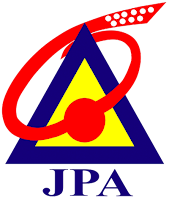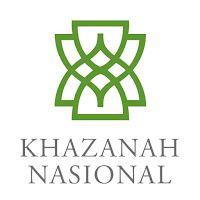Breaking: University of Malaya (UM) to Restructure Organisation to Cut OPEX, Merging 12 Faculties into 6 Effective September 2014
Posted by ChongAccording to a news reported by Chinese newspaper Oriental News yesterday, University of Malaya (Universiti Malaya, UM), the country's most prestigious local public university, is expected to merge its current 12 faculties, 2 academies and 3 centres into 6 faculties in order to cut operating expenditure (OPEX) effective next semester term commencing in September this year.
All 12 affected faculties are Faculty of Arts & Social Sciences, Faculty of Business & Accountancy, Faculty of Computer Science & Information Technology, Faculty of Dentistry, Faculty of Economics & Administration, Faculty of Education, Faculty of Engineering, Faculty of Languages & Linguistics, Faculty of Law, Faculty of Medicine, Faculty of Science and Faculty of Built Environment; 2 academies are Academy of Islamic Studies and Academy of Malay Studies; and 3 centres are Cultural Centre, Sports Centre and Centre for Foundation Studies in Science.
Note that there are actually one more centre — University of Malaya Centre of Continuing Education (UMCCed) — and five institutes — Asia-Europe Institute, International Institute of Public Policy & Management (INPUMA), Institute of Educational Leadership, Institute of Graduate Studies and Institute of Research Management & Monitoring — which might not be affected by the reorganisation plan.
According to the sources, the new organisation structure will see the merger of Faculty of Arts & Social Sciences, Faculty of Education and Faculty of Languages & Linguistics; Faculty of Business & Accountancy, Faculty of Economics & Administration and Faculty of Law; Faculty of Engineering, Faculty of Computer Science & Information Technology and Faculty of Science; Academy of Islamic Studies and Academy of Malay Studies. No information on the merger of the remaining faculties is available for the time being.
Sources said the strategic plan was already in the work since the previous Vice-Chancellor (VC) Tan Sri Ghauth Jasmon's term, according to Oriental News. Professor Datuk Dr Mohd Amin Jalaludin was then appointed to replace him as the new VC since November last year. The main drive for the restructuring move is aimed at reducing overhead costs due to change in cost structure — from the current 30% assumed by university, 70% by federal government subsidies to 70% borne by university, 30% by government subsidies — effective 2015. Officials claimed the merger to be beneficial to the academic development of the university, in addition to promoting cross-sectorial and cross-academic collaborations and exchanges, according to sources familiar with the matter. Moreover, the decision of this substantial change of the country's number one tertiary institution according to recent QS world university ranking has already passed the university's internal review and will be implemented beginning next academic term. The university has not made any official internal or public announcement on the decision.
UM, Malaysia's oldest and top public research university in Malaysia, is situated on a 750 acre (309 hectare) campus in the southwest of Kuala Lumpur, the capital of Malaysia. It was established on 8th October 1949 in Singapore with the merger of the King Edward VII College of Medicine (founded in 1905) and Raffles College (founded in 1928). The growth of the University was very rapid during the first decade of its establishment and this resulted in the setting up of two autonomous Divisions on 15 January 1959, one located in Singapore and the other in Kuala Lumpur. In 1960, the government of the two territories indicated their desire to change the status of the Divisions into that of a national university. Legislation was passed in 1961 and the University of Malaya was established on 1st January 1962. On June 16th 1962, University of Malaya celebrated the installation of its first Chancellor, Tunku Abdul Rahman Putra Al-Haj, who was also the country's first prime minister.
One of the expected outcomes of the merger of Faculty of Arts & Social Sciences, Faculty of Education and Faculty of Languages & Linguistics, although yet to be officially confirmed, is the incorporation of the existing Department of Chinese Studies (established since 1963), Department of Indian Studies, Department of History and others as new units under Department of Humanities & Regional Research. This has generated much heated discussion among the Chinese community since the news report was published, many view it as a downgrade or shrunken in size from 'Department' status to 'Unit'. Prominent alumni of UM's Bachelor of Arts (Chinese Studies) include politicians former Transport Minister Tan Sri Chan Kong Choy and former Deputy Higher Education Minister Dr Hou Kok Chung.
Currently, Department of Chinese Studies under Faculty of Arts & Social Sciences offers Chinese Studies degree (Sarjana Muda Sastera - Pengajian Tionghua) for both undergraduate and postgraduate levels while Department of Malaysian Languages and Applied Linguistics under Faculty of Languages & Linguistics offers Chinese language and linguistic (Sarjana Muda Bahasa & Linguistik - Bahasa Cina) degree. These two programmes are expected to fall under the same unit in the Department of Humanities & Regional Research after the merger of the faculties. Bachelor of Arts (Chinese Studies) focuses on the language, literature, society, culture and studies on the Chinese community (including the history of China) whereas Bachelor of Languages and Linguistics (Chinese) focuses on the form, meaning and context aspects of Chinese language.
► Read more on Breaking: UM's Big Reorg Reportedly Set for September 2014, All 12 Faculties to Merge into 6















































